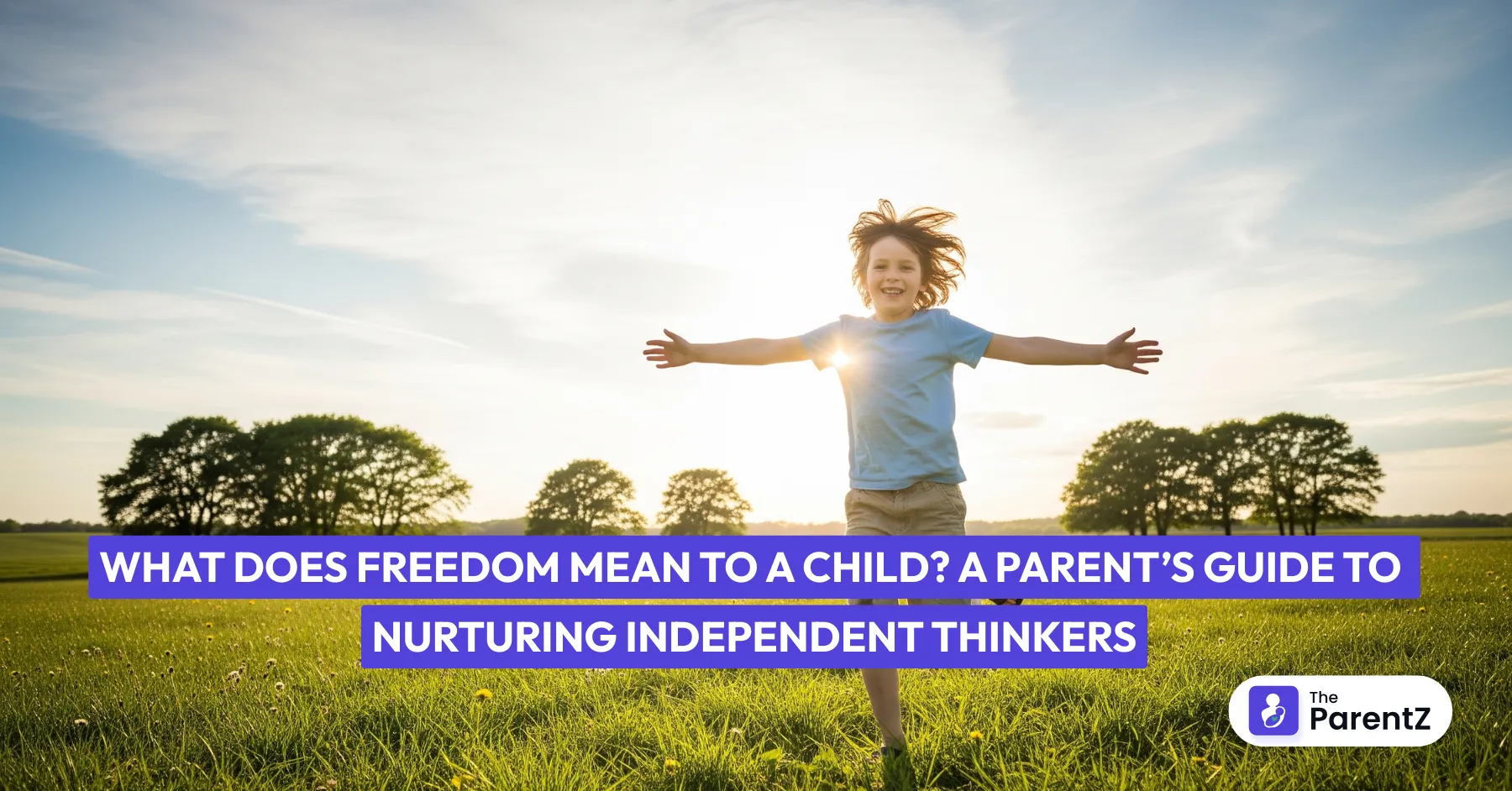Remember when you were seven and your biggest dream was staying up past bedtime? Or when you were twelve and all you wanted was to walk to the corner store alone? That feeling of wanting more control over your world, that's freedom talking. And your child feels it too.
But here's the thing: what freedom means to your child is probably very different from what it means to you. And understanding this difference? It's the key to raising kids who think for themselves.
The Toddler's View: "I Do It Myself!"
For a three-year-old, freedom sounds like: "I want to pick my own clothes!" (Even if it's a superhero costume to the grocery store.) At this age, freedom is about making small choices and feeling heard.
Your toddler's brain is discovering that they're separate from you. They want to try things, even if they fail. That messy sandwich they insist on making? It's not about the sandwich. It's about proving to themselves that they can do something without help.
What they're really thinking: "If I can choose this, maybe I'm becoming a real person too."
The School-Age Shift: Rules vs. Choices
By age six or seven, kids start seeing freedom differently. Now they understand rules exist, but they're testing which ones are flexible. They want to know: "Why can't I have dessert first?" or "Why do I need to ask permission to call my friend?"
This age group sees freedom as fairness. They notice when their older sibling gets different rules and wonder when they'll earn those same freedoms. Their world revolves around earning privileges and understanding the "why" behind the rules.
What's going through their heads: "If I prove I'm responsible with small things, maybe I'll get bigger choices."
The Tween Years: Freedom Feels Urgent
Fast forward to ages 10-12, and suddenly, freedom becomes an emotional issue. Your child might say things like: "You never let me do anything!" or "All my friends are allowed to..."
This isn't drama for drama's sake. Their friends are becoming more important, and they're starting to see your family's rules compared to those of other families. Freedom now means belonging and not feeling different from their peers.
They're thinking: "My friends will think I'm a baby if I can't do what they do."
How Family Style Shapes Their View
Kids from different families see freedom completely differently.
- In families where everything is discussed and kids have input, children might view freedom as having a voice in decisions. They expect to be heard and to negotiate.
- In more structured families, kids often see freedom as earning trust through good behavior. They understand that freedom comes after proving responsibility.
Neither approach is wrong. But knowing your family's style helps you understand why your child might react differently to limits than their friends do.
The Environment Factor
Where your child grows up matters too. Kids in small towns might view freedom as being able to walk to friends' houses or ride bikes around the neighborhood. City kids might see freedom as taking public transport alone or having their own key to the apartment.
Kids who move a lot often see freedom as stability, like staying in one place long enough to make real friends. At the same time, kids who've always lived in the same house might see freedom as exploring new places.
Reading the Signs: When Your Child Wants More Freedom
Watch for these moments:
- They start asking "why" more often about the rules
- They mention what other kids are allowed to do
- They volunteer for responsibilities without being asked
- They want to solve problems on their own first
These aren't signs of rebellion. They're signs of growth.
Nurturing Independent Thinking
Here's how to honor their need for freedom while keeping them safe:
- Start with small choices: Let them pick between two good options. "Do you want to do homework before or after dinner?" gives them control within boundaries you're comfortable with.
- Explain your reasoning: Instead of "Because I said so," try "I worry about your safety when..." Kids who understand the thinking behind rules are more likely to make good choices when you're not around.
- Let them experience natural consequences: If they forget their lunch, let them feel hungry (assuming the school has backup food). Real consequences teach better than lectures.
- Ask for their input: "What do you think would be a fair bedtime for someone your age?" You might be surprised by their reasonable answers.
- Celebrate their good choices: When they make a responsible decision independently, acknowledge it. "I noticed you started your project early without me reminding you. That shows me you're ready for more independence."
Conclusion
Remember, the goal isn't to maintain control forever. It's to gradually hand over decision-making as they show they can handle it. Every small freedom they handle well prepares them for bigger ones.
Your child's view of freedom will keep changing as they grow. The seven-year-old who just wants to stay up late becomes the teenager who wants to choose their own path in life. By understanding and respecting their perspective at each stage, you're not just giving them freedom, you're teaching them how to use it wisely.
And that's the real gift: raising someone who doesn't just want freedom, but knows what to do with it.





Be the first one to comment on this story.